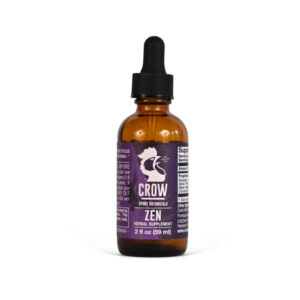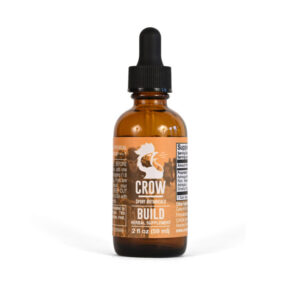It’s all over. The idea of replacing hazardous chemicals has crept into every aspect of the consumer goods sector, from beds to cosmetic items. Nevertheless, with this better knowledge of the ingredients in the products we use every day comes a greater need for customers to understand the ingredient list on their products’ labels. We’ve all heard the admonition to avoid components we don’t recognize: many synthetic organic compounds and their substitutes are concealed under difficult-to-pronounce phrases like “dibutyl phthalate” and “propylparaben.” So what qualities ought we to search for in our goods? Insert components made from plants. Botanicals made from plants are probably familiar to you, and herbal remedies and goods derived from nature are popular right now. Yet it’s only when we go a bit further and learn the advantages of plant-based substances that we can start to develop a holistic way of life that endures. The strength of our decisions increases when we know the “why” behind them.

Plants have long been utilized as a source of medicine and are still the starting point for many modern medications. Despite the fact that plant medicine gave rise to the contemporary pharmaceutical industry, synthetic methods of drug development are now the norm. The market for botanical treatments, which are now offered as dietary supplements, medications, or botanical pharmaceuticals, is expanding despite the fact that this contemporary strategy has resulted in a drop in new drug discovery in recent years. The majority of botanical treatments come from medicinal plants that have been grown to produce more bioactive ingredients. With the domestication of agricultural crops, the phytochemical composition of many plants has altered through time, with certain bioactive chemicals’ content being increased and others’ being decreased. Because of their enormous potential for biosynthetic production, plants continue to be an important source of medicinal chemicals. The complex composition of botanicals, which consists of groups of related chemicals with overlapping activities that combine to produce a higher overall activity, is one of their main advantages.
Natural ingredients have always offered an infinite supply of medication. The human pharmacopoeia has been dominated by items of plant origins for thousands of years, mostly unopposed. Aspirin was the first synthetic medication produced in 1897 by Arthur Eichengrün and Felix Hoffmann when they were employed by Friedrich Bayer. Salicylic acid, a key component of herbal analgesics, was used to create aspirin (acetylsalicylic acid). An era dominated by the pharmaceutical business began with this achievement. When Alexander Fleming discovered penicillin in 1928, he added bacteria to the list of crucial sources for new medications. Recent advancements in combinatorial chemistry, computer (in silico) drug design, and structure activity-guided organic synthesis have reduced the importance of naturally occurring substances derived from plants in drug development.
What Are Botanicals?
The therapeutic and medical benefits of botanical compounds, often known as plant-derived additives, are well-known. One of the pioneers in commercializing the use of medicinal plants was Sebastian Kneipp, who is often regarded as the “founder of naturopathy.” His favorite herb was arnica, which is frequently used to lessen pain and stiffness in joints and muscles. He identified over 40 plant-based medicines. In order to create medications, treatments, and eventually bath and body products, he processed natural cures. Botanicals, which are primarily thought of as a form of preventative medicine, use the strength of plants to advance holistic health and wellness. Botanical goods come in a number of forms, from creams and tinctures to oils and salts, and are most frequently utilized in skincare and bath products. Botanicals may be employed proactively rather than reactively, that’s correct. Throughout time, people before us have actively fought sickness and maintained healthy bodies and minds by utilizing the beauties of Mother Nature.
In fact, current evidence indicates that our ancestors’ use of botanicals to benefit themselves may have been wise: They battle early aging. Antioxidants, which are abundant in plant extracts, help shield the skin from the damaging effects of UV radiation. Certain plant species can even aid in the stimulation of collagen formation and the reduction of the activity of enzymes that damage healthy, elastic skin. They avoid causing irritation. Phospholipids, which are found in plant oils, have anti-inflammatory effects and can support the skin barrier’s homeostasis. A healthy epidermis, or skin’s top layer, is crucial for avoiding dangerous germs and microorganisms and maintaining a stable pH level. They help you stay hydrated. Plant oils have the ability to both form a barrier of protection and aid in keeping our skin cells’ necessary levels of water. Moreover, balanced skin is better moisturized and has better access to the NMFs, or Natural Moisturizing Factors, that contribute to the skin’s natural hydration (NMF). The most important lesson? Using elements from plants may really support our bodies’ physiological processes, which are meant to keep us wholesome, balanced, and in sync with our circadian cycles. With these scientifically proven advantages of botanicals, it should come as no surprise that these plant-based substances are found in most body and skincare products today.
Supporting The Physical Body
The use of certain botanical substances in goods and treatments that may benefit the physical body. For instance, arnica is well known for relieving sore muscles and joints. In particular for individuals experiencing congestion or other cold symptoms, eucalyptus has been recognized for its health advantages. From the dawn of time, women have utilized herbs like black cohosh to treat the symptoms of menopause, and it’s been said that Cleopatra’s grooming regimen included natural baths with salts and sugar to exfoliate her skin. Nowadays, ginger is widely used in a number of forms to boost immunological and digestive health. Even though botanicals may be nature’s medical cabinet, despite these widely recognized functions for physical welfare, they are categorized as supplements rather than medications.
Exploring the Uses of Aromatherapy
Aromatherapy, which may be used to heal both physical and mental ailments, heavily relies on botanicals. Aromatherapy, which is also known as essential oil therapy, focuses on the all-encompassing use of essential oils to improve wellbeing through products like body butters and therapeutic inhalers. Although the usage of botanicals dates back a long way in human history, it was French scientist and perfumer Rene-Maurice Gattefosse who gave rise to the current idea of aromatherapy in 1937. He published a book titled “Gattefosse’s Aromatherapy” that detailed his clinical discoveries for utilizing essential oils to treat physical ailments, clearly separating their therapeutic use from their then-accepted aesthetic uses. The study of aromatherapy has expanded and developed over the past few decades into a more holistic approach that takes into account the mind, body, and spirit. It should come as no surprise that our sense of smell influences our brain function, which affects our mood and stress levels, given how closely our physical and mental health are intertwined. According to studies, it can also cause sudden changes in muscular tension, heart rate, and blood pressure. The final word? Aromatherapy is crucial for the mind-body connection and has a significant impact on both physical and mental health. Lavender is one of the most well-known smells for relaxation and is frequently used to help people rest and decompress after a demanding day. Another herb believed to relax the mind and promote deeper sleep is valerian. In addition to its ability to elevate mood, rosemary supports healthy hair development and may enhance mental and memory performance. Peppermint may be used to improve attention and ease headaches and muscular discomfort for those of us who have recurrent migraines. The number of useful essential oils is endless, and there are countless ways to learn about oneself through aromatherapy and botanicals. This is especially true now, when these items are so widely available. Whether you’re just starting to learn about botanicals or already include them into your daily wellness regimen, being aware of the advantages of nature’s pharmacy may help you develop a more thoughtful strategy for your overall health.
Crow Sport Botanicals: Zen Gameday Formula

ZEN is a mental training method for precision sports that helps you tune out the outside world while increasing your focus and intensity. Golf, diving, archery, baseball, ski racing, tennis, and other activities fit it perfectly.
The remedy uses a blend of herbs to energize the body and mind while also supplying nutritious energy to help adrenal systems under stress from the rigors of competition. Although ZEN is a GAMEDAY (as opposed to EVERYDAY) combination designed to improve performance right away, the herbs also enhance longer-term mental and emotional sturdiness.
Crow Sport Botanicals: Build Everyday Formula

BUILD is a daily supplement for mental and physical fortification as opposed to a gameday supplement. The recipe contains a potent combination of plant-based ingredients that support brain stimulation and skill development while promoting muscular growth and repair.
Botanicals and Your Brain Health
With good reason, brain health is a hugely popular wellness issue. Maintaining your cognitive capacity is essential for healthy aging and long-term wellbeing. Memory, attention, and problem-solving are just a few examples of the cognitive functions that go into thinking and knowing. Some well-researched botanicals can be utilized in conjunction with other lifestyle practices, such as a balanced diet, to safeguard and maintain normal brain function. Many of these herbs or plant extracts have been utilized in traditional therapy for countless years. You don’t need to wait for symptoms to appear in order to maintain optimal brain function.
Health Benefits of Botanicals
Botanicals continue to be the subject of research that emphasizes their many beneficial effects on the body. The health advantages of phenolic chemicals for the diet are one example of especially current attention. Although the majority of people categorize these substances as antioxidants, In his book The Gut-Immune Connection, Emeran Mayer, MD, explains how polyphenols not only help the microbiome operate properly and promote overall health, but also “act as prebiotics [i.e., food for our gut microorganisms] and prevent the proliferation of harmful microbes.” Although being categorized as dietary supplements rather than pharmaceuticals, it is widely accepted that plant medicines are in fact medicines. Americans therefore utilize them similarly to how traditional drugs are used to treat illnesses and their symptoms. Women, for instance, employ phytoestrogenic plants like red clover and black cohosh to address menopausal symptoms.
The use of botanicals is supported by a large body of scientific and clinical research. See Is There Strong Scientific Support? Unfortunately, dietary supplement producers are prohibited by law from stating that their products treat or prevent disease and hence are unable to offer comprehensive instructions on how to utilize their products. As a result, customers who want to utilize these goods in a knowledgeable manner must search for information from outside sources. Humans have been experimenting with plants since the beginning to see how they may aid in our recovery. In essence, people have been a part of a massive “clinical trial” with medicinal plants for thousands of years. In our history of healing and healthcare, the insight that came from this worldwide experiment has played a significant role.




